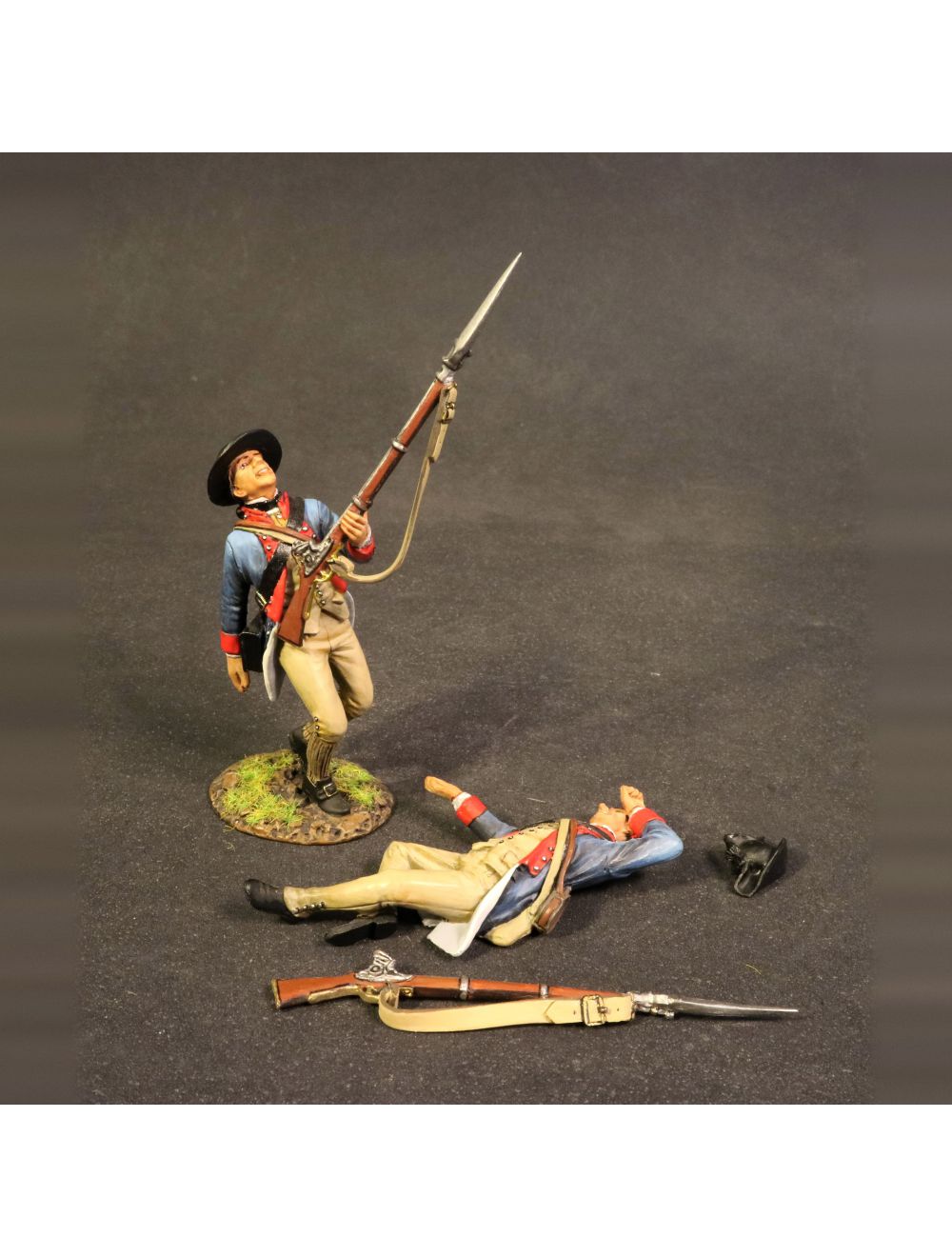The 2nd New Hampshire Regiment was formed in early May 1775, as the second of three Continental Army regiments raised by the state of New Hampshire during the American Revolutionary War. Its first commander was Colonel Enoch Poor, with Joseph Cilley as major. Many of the men who served in the unit hailed from southeastern New Hampshire and western Maine (then part of Massachusetts).
After Enoch Poor was promoted to Brigadier, Nathan Hale was commissioned colonel of the 2nd New Hampshire Regiment in April 1777.
Flags or colors which belonged to the 2nd NH were captured at Fort Anne in July 1777 during the retreat from Fort Ticonderoga. After more than a century, they were returned from Britain, and are on display today at the Tuck Library of the New Hampshire Historical Society in Concord. They are among the only American battle flags from the Revolutionary War known to exist. The colors containing the motto "The Glory Not the Prey" are marked "2nd NH Regt", while the other colors captured at the time, the linked 13 rings, were likely a type of national color. Two other flags captured by the British at Skenesboro were also noted and they had similar designs, especially another with the 13 linked rings. While their colors were lost, the 2nd New Hampshire fought bravely in the autumn of 1777, where they were heavily engaged with British forces at Saratoga, leading to the surrender of General John Burgoyne's army.
Flags or colors which belonged to the 2nd NH were captured at Fort Anne in July 1777 during the retreat from Fort Ticonderoga. After more than a century, they were returned from Britain, and are on display today at the Tuck Library of the New Hampshire Historical Society in Concord. They are among the only American battle flags from the Revolutionary War known to exist. The colors containing the motto "The Glory Not the Prey" are marked "2nd NH Regt", while the other colors captured at the time, the linked 13 rings, were likely a type of national color. Two other flags captured by the British at Skenesboro were also noted and they had similar designs, especially another with the 13 linked rings. While their colors were lost, the 2nd New Hampshire fought bravely in the autumn of 1777, where they were heavily engaged with British forces at Saratoga, leading to the surrender of General John Burgoyne's army.
| Years | Late 18th Century |
|---|---|
| Gender | Men |
| Role | Dead & Wounded |
Write Your Own Review

 Français
Français

